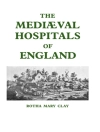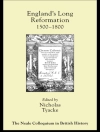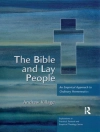What were the lives of Africans in provincial England like during the early modern period? How, where, and when did they arrive in rural counties? How were they perceived by their contemporaries?
This book examines the population of Africans in Norfolk and Suffolk from 1467, the date of the first documented reference to an African in the region, to 1833, when Parliament voted to abolish slavery in the British Empire. It uncovers the complexity of these Africans’ historical experience, considering the interaction of local custom, class structure, tradition, memory, and the gradual impact of the Atlantic slaving economy.
Richard C. Maguire proposes that the initial regional response to arriving Africans during the fifteenth and sixteenth centuries was not defined exclusively by ideas relating to skin colour, but rather by local understandings of religious status, class position, ideas about freedom and bondage, and immediate local circumstances. Arriving Africans were able to join the region’s working population through baptism, marriage, parenthood, and work.
This manner of response to Africans was challenged as local merchants and gentry begin doing business with the slaving economy from the mid-seventeenth century onwards. Although the racialised ideas underpinning Atlantic slavery changed the social circumstances of Africans in the region, the book suggests that they did not completely displace older, more inclusive, ideas in working communities.
Table des matières
List of Illustrations
Acknowledgements
List of Abbreviations
A note on dating, transcription, currency, weights and measures, and references
Introduction. A Social History of Africans in early modern Norfolk and Suffolk
One. Identifying the African Population in Early Modern Norfolk and Suffolk
Two. Beginnings: The Establishment of the African Population, 1467 to 1599
Three. ‘Strangers’, ‘Foreigners’, and ‘Slavery’
Four. The Seventeenth Century. The Early Shadow of Transatlantic Slavery
Five. The African Population, 1600-1699
Six. Eighteenth-Century Links to the Atlantic Economy
Seven. Eighteenth-Century African Lives
Eight. The ‘Three African Youths’, a Gentleman, and Some Rioters
Epilogue: Reconsidering the Social History of Africans in Norfolk and Suffolk
Appendix A: The African and Asian Population identified in Norfolk and Suffolk, 1467-1833
Appendix B: The Surname ‘Blackamore’, 1500-1800
Appendix C: Plantation Ownership in Norfolk and Suffolk, 1650-1833
Bibliography
A propos de l’auteur
RICHARD C. MAGUIRE is Honorary Senior Lecturer in the School of History at the University of East Anglia, Norwich. He is the author of Africans in East Anglia, 1467-1833 (Boydell Press, 2021).












